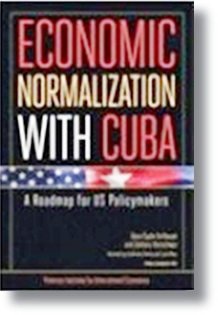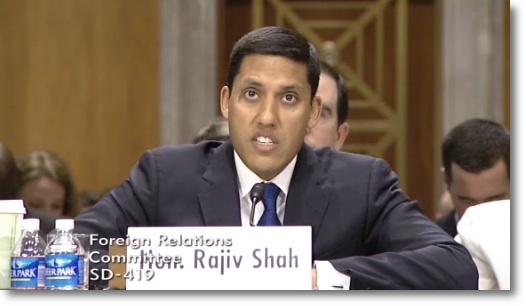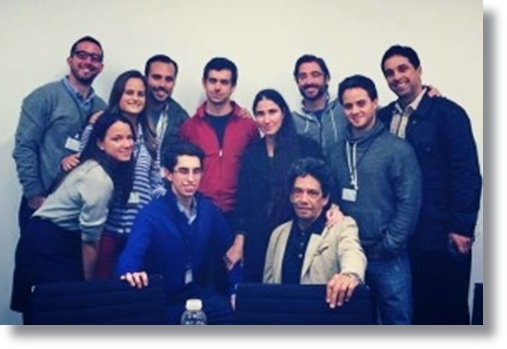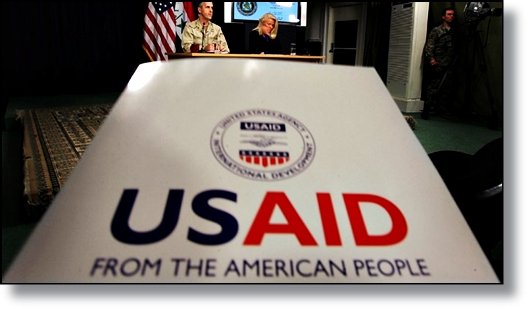Por Alipio G. Sollet
 El Insituto Peterson de Estados Unidos, acaba de editar el libro “Economic Normalization with Cuba: A Roadmap for US Policymakers”, escrito por Gary Clyde Hufbauer y Barbara Kotschward, quienes contaron con la asistencia de Cathleen Cimino y Julia Muir. Como su nombre lo indica, los autores ofrecen a los formuladores de políticas en Estados Unidos lo que consideran una Hoja de Ruta para la Normalización Económica con Cuba.
El Insituto Peterson de Estados Unidos, acaba de editar el libro “Economic Normalization with Cuba: A Roadmap for US Policymakers”, escrito por Gary Clyde Hufbauer y Barbara Kotschward, quienes contaron con la asistencia de Cathleen Cimino y Julia Muir. Como su nombre lo indica, los autores ofrecen a los formuladores de políticas en Estados Unidos lo que consideran una Hoja de Ruta para la Normalización Económica con Cuba.
Para pocos es un secreto que el bloqueo económico, comercial y financiero de los Estados Unidos contra Cuba, puesto en vigor oficialmente en 1962, que ha sido condenado de manera abrumadoramente mayoritaria por las Naciones Unidas en 22 ocasiones consecutivas, ha significado una pesada carga para la economía cubana y que le ha ocasionado cuantiosas pérdidas económicas y comerciales y la pérdida de numerosas oportunidades de negocios en los 52 años en que ha estado vigente.
Por otro lado, no cabe la menor duda de que EE.UU. y Cuba tienen mucho que ganar con unas relaciones económicas, comerciales y financieras normales. No habría que argumentar mucho más, si damos por ciertos los datos recopilados para el estudio, donde se señala que las exportaciones estadounidenses a Cuba podrían alcanzar los 4,300 millones de dólares anuales, mientras que las de Cuba a Estados Unidos podrían llegar a los 5.800 millones.
Hasta hace muy poco, cuando el Gobierno cubano no parecía verdaderamente dispuesto a emprender reformas económicas internas de gran calado, los riesgos para Estados Unidos de perder oportunidades de negocios en Cuba parecían insignificantes. Sin embargo, los pasos más osados y de más calado que viene dando el presidente Raúl Castro a partir de la aprobación por el VI Congreso del Partido de los Lineamientos que respaldan lo que el gobierno ha dado en llamar “Actualización del modelo económico y social”, podrían comenzar a incrementar gradualmente los riesgos de pérdidas de oportunidades de negocios para las empresas estadounidenses.
La aprobación en marzo pasado de la “Nueva Ley para la Inversión Extranjera”, que aumenta la seguridad para los inversores en Cuba y ofrece oportunidades y garantías que se homologan con los estándares aplicados internacionalmente, y el establecimiento de la Zona de Desarrollo Especial de Mariel, son dos nuevos elementos que podrían dinamizar la inversión y el comercio en Cuba –y en consecuencia aumentar la competencia—, que no estaban presentes en el escenario económico y comercial de la Isla hace apenas seis meses.
Contrario a lo que escriben los autores del estudio, Cuba enfrenta ya hoy importantes retos económicos, cuyas soluciones podrían bajarle el tenor a los retos que habría de enfrentar llegado el momento del fin del bloqueo, algo que Hufbauer y Kotschward no prevén antes del 2018; un período que a mi se me antoja demasiado prolongado, si lo que pretende Estados Unidos es no llegar tarde al “proceso de actualización” que ahora comienza a ganar fuerza en la Isla.
Es cierto que en épocas anteriores la propaganda cubana sobre las perdidas que encajaba EE.UU. por su política de sanciones económicas y comerciales contra Cuba parecía estar por delante de la realidad económica y sobredimensionaba un tanto las perdidas de oportunidades de negocios frente a empresarios de la Unión Europea; pero el Gobierno cubano ha decidido mover fichas –a su ritmo, claro está—, y la realidad comienza a tonarse distinta. Sigue leyendo




